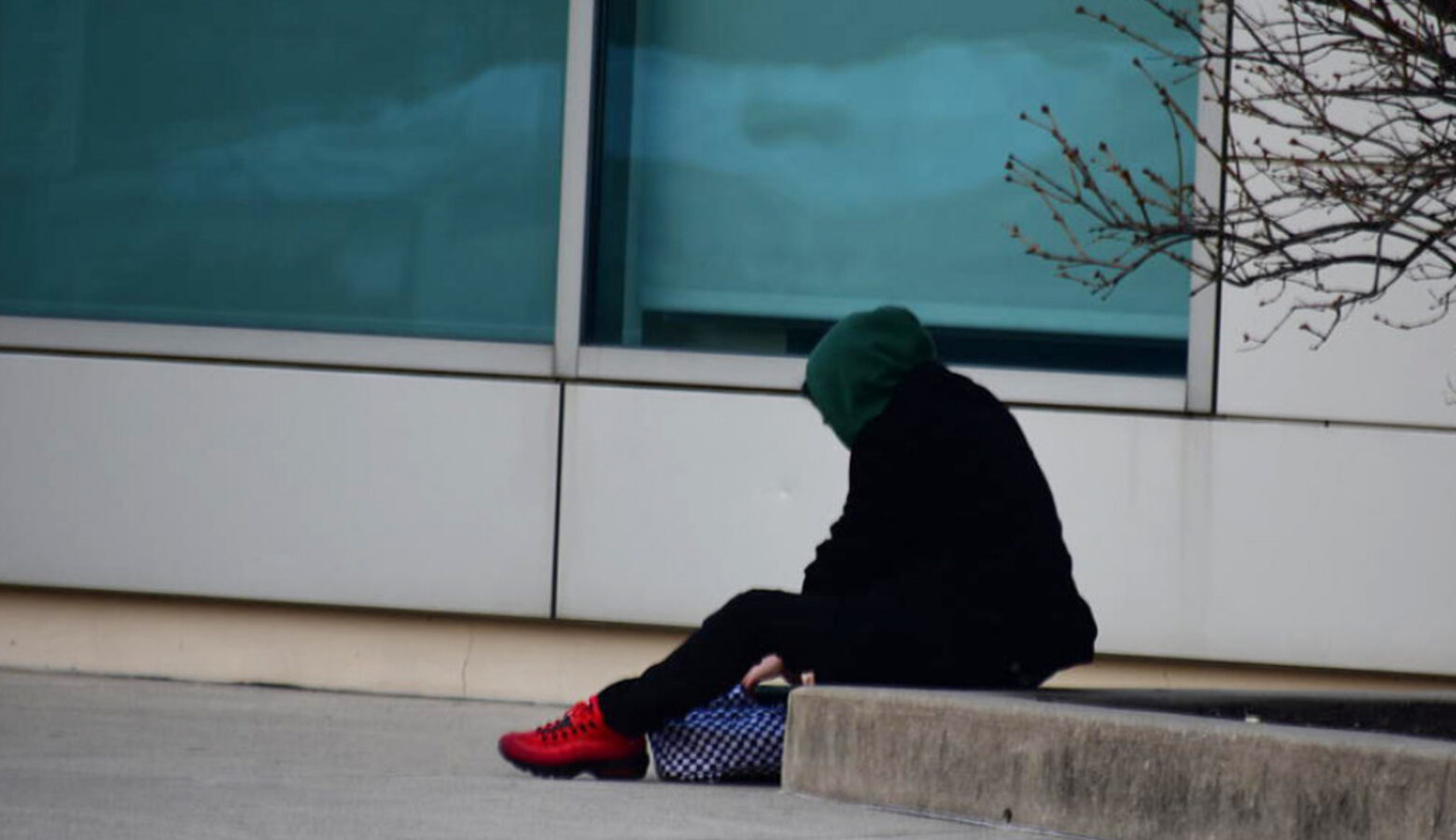Indiana bill to punish people sleeping outside fails, but language could come back

Advocates for people experiencing homelessness have spent the past week urging lawmakers to amend or throw out the bill, which would jail and fine people sleeping on state property. Now, some legislators hope to create a task force to study homelessness across the state.
“I’m committed to working with the bill and the bill authors to find the right language,” said Indiana House Speaker Todd Huston. “I think there’s language that we can get to that I think will have bipartisan support, we just weren’t there yet.”
House Bill 1662, authored by Rep. Michelle Davis (R-Whiteland), would have required police officers to give a warning to anyone sleeping or camping on land owned by the state or a political subdivision, unless it was authorized for that use under this code or another law. If someone was still on the property 24 hours later, that person would receive a Class C misdemeanor, which includes up to 60 days in jail and a fine up to $500.
Nearly 5,000 people were counted as experiencing homelessness in Indiana last year, according to the Indiana Housing and Community Development Authority. It’s a slight dip from 2023, which advocates attribute to the implementation of new housing and substance abuse programs over the past few years.
Discussions around HB 1662 have been heated at the statehouse.
Proponents of the bill argue that issuing a Class C misdemeanor to people who are sleeping outside would be a way to protect them during extreme weather events and encourage them to seek services.
Advocates, such as Lafayette resident Dawn Baldwin, disagree and say a misdemeanor and a fine up to $500 could make it harder for people to find housing or employment, and take necessary funds away from homeless advocacy organizations that could end up paying for those fines.
Baldwin said she has a degree in Aeronautical Engineering and Technology, but lost everything and experienced homelessness for 10 years after having a psychotic break due to a schizoaffective disorder. She said people who have never been unhoused don’t always understand how someone lost their home and the difficulties of finding permanent shelter.
“A lot of people are a paycheck away from being homeless,” Baldwin said. “We have elderly [at Lafayette Transitional Housing] who can’t survive on their social security check. So, it’s not just the drug addicts and the alcoholics.”
The original version of the bill included other provisions that were struck down during committee hearings, including one that would prevent organizations from using state funds to pay for long-term housing.
On Monday, the House Committee on Government and Regulatory Reform voted against an amendment to create a task force that would study homelessness. The bill passed first reading, then passed second reading on Wednesday. But there wasn’t enough support on both sides of the full House to push the legislation forward during the third reading.
“It basically creates a criminal penalty for a homeless person to be in a public space,” Rep. Chris Campbell (D-West Lafayette) said. “Which is generally not considered to be illegal for any citizen to be in a public space –– that’s the definition of a public space.”
Now, some lawmakers, like Campbell, hope a task force will be formed to study the impact of mental illness on people and veterans experiencing homelessness, access to services and other issues over the next two years.
Local organizations have studied homelessness, but the Indiana legislature hasn’t, according to Rep. John Bartlett (D-Indianapolis) during a committee meeting on Monday.
Lawmakers are able to request the creation of a task force by the end of the legislative session, but their proposal could be changed or denied by House and Senate leadership.
Even so, language criminalizing street camping could still sneak back into a different law before the session ends.
“A lot of our lobbyists will be watching those bills when they come back [to the House] and trying to scan through them just so we have extra eyes on the bills,” Campbell said. “But there have been times when language gets put into a bill that gets missed, and it can have very negative consequences on our state policy.”
Proposed legislation will flip chambers next week. Now the House will discuss Senate Bill 219 – a bill that would address criminal behavior, such as damaging outdoor spaces, committed by people experiencing homelessness. The legislation has received support from advocates for people who are unsheltered, such as Baldwin.
But Campbell said lawmakers could try to weave in language criminalizing street camping into SB 219.
Contact WFYI’s health reporter Elizabeth Gabriel at egabriel@wfyi.org


